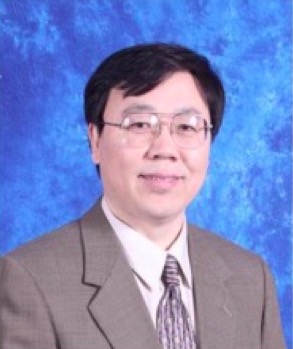Wei Wu, MD. PhD.
Education
PhD, 1994 Beijing University, Biochemistry and Molecular Biology.
MD, 1988 Harbin Medical University.
Research Experience
08/2012-now Professor, School of Basic Medical Sciences, Capital Medical University, Beijing, China
06/07-07/2012 Professor, School of Public Health and Family Medicine, Capital Medical University, Beijing, China
04/02-06/07
Research Assistant Professor
Biomedical and Biochemistry Program, University of California, Riverside.
08/00-04/02
Postdoc. Division of Biomedical Sciences, University of California, Riverside.
07/98-07/2000
Postdoc. Dept. of Internal Medicine, University of Texas Medical Branch at Galveston.
05/96-07/98
Postdoctoral Research Associate. Dept. of Genetics, Case Western Reserve University.
RESEARCH INTERESTS
We are developing Sulforaphane and its analogs and investigating their effects on cancers. We have demonstrated they induced apoptosis in most cancers and it is necessary to find the mechanisms and to put them in clinical trial.
Professional Activities
A Regular member of the following societies:
● American Physiology Society,
● The Endocrine Society,
● American Society for Biochemistry and Molecular Biology,
● Federation of American Societies For Experimental Biology (FASEB),
● The International Cardiovascular Society, and
● Canadian Society for Biochemistry and Molecular Biology.
A specially invited member of American Diabetes Association.
A reviewer of Endocrine Journal and Molecular and Cellular Endocrinology.
An editorial board member of Journal of China Laboratory Animal.
An editorial board member of Journal of Medical Sciences Research
An editorial board member of Journal of Epithelial Biology and Pharmacology
Awards
An award was given in 1999 for outstanding contribution to US hypertension research.
An award for scientific contribution was granted in 1994 in China.
Publications:
Tian H, Zhou Y, Yang G, Geng Y, Wu S, Hu Y, Lin K, Wu W. Sulforaphane-cysteine suppresses invasion via downregulation of galectin-1 in human prostate cancer DU145 and PC3 cells. Oncol Rep. 2016 doi: 10.3892/or.2016.4942. [Epub ahead of print] PMID :27430422
Peng X, Zhou Y, Tian H, Yang G, Li C, Geng Y, Wu S, Wu W* Sulforaphane inhibits invasion by phosphorylating ERK1/2 to regulate E-cadherin and CD44v6 in human prostate cancer DU145 cells. Oncol Rep. 2015. 34: 1565-1572.
Li C, Zhou Y, Peng XH, Du L, Tian H, Yang GH, Niu J, Wu W*. Sulforaphane inhibits invasion via activating ERK1/2 signaling in human glioblastoma U87MG and U373MG cells. PloS One 9(2): e90520. doi:10.1371/journal.pone.0090520, 2014.
Li Z, Du L, LiC, Wu W*. J Neurooncol. 2013 Feb;111(3):237-44.
Li Z, Li C, Du L, Zhou Y, Wu W*. Human chorionic gonadotropin β induces migration and invasion via activating ERK1/2 and MMP-2 in human prostate cancer DU145 cells.PLoS One. 2013;8(2):e54592.
Du L,Wu W*. A mimic of phosphorylated prolactin induces apoptosis by activating AP-1 and upregulating p21/waf1 in human prostate cancer PC3 cells. Oncol Lett. 2012; 4(5): 1064-1068.

